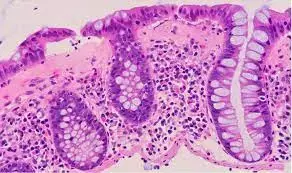- Home
- Medical news & Guidelines
- Anesthesiology
- Cardiology and CTVS
- Critical Care
- Dentistry
- Dermatology
- Diabetes and Endocrinology
- ENT
- Gastroenterology
- Medicine
- Nephrology
- Neurology
- Obstretics-Gynaecology
- Oncology
- Ophthalmology
- Orthopaedics
- Pediatrics-Neonatology
- Psychiatry
- Pulmonology
- Radiology
- Surgery
- Urology
- Laboratory Medicine
- Diet
- Nursing
- Paramedical
- Physiotherapy
- Health news
- Fact Check
- Bone Health Fact Check
- Brain Health Fact Check
- Cancer Related Fact Check
- Child Care Fact Check
- Dental and oral health fact check
- Diabetes and metabolic health fact check
- Diet and Nutrition Fact Check
- Eye and ENT Care Fact Check
- Fitness fact check
- Gut health fact check
- Heart health fact check
- Kidney health fact check
- Medical education fact check
- Men's health fact check
- Respiratory fact check
- Skin and hair care fact check
- Vaccine and Immunization fact check
- Women's health fact check
- AYUSH
- State News
- Andaman and Nicobar Islands
- Andhra Pradesh
- Arunachal Pradesh
- Assam
- Bihar
- Chandigarh
- Chattisgarh
- Dadra and Nagar Haveli
- Daman and Diu
- Delhi
- Goa
- Gujarat
- Haryana
- Himachal Pradesh
- Jammu & Kashmir
- Jharkhand
- Karnataka
- Kerala
- Ladakh
- Lakshadweep
- Madhya Pradesh
- Maharashtra
- Manipur
- Meghalaya
- Mizoram
- Nagaland
- Odisha
- Puducherry
- Punjab
- Rajasthan
- Sikkim
- Tamil Nadu
- Telangana
- Tripura
- Uttar Pradesh
- Uttrakhand
- West Bengal
- Medical Education
- Industry
Long-term use of budesonide effective in microscopic colitis: ACG

Long-term use of budesonide in microscopic colitis (MC) appears to be effective, according to a recent study published in The American Journal of Gastroenterology
The outcomes and safety of budesonide maintenance therapy in microscopic colitis (MC) are not well known. Adult residents of Olmsted County, Minnesota diagnosed with MC (2002-2019) and treated with budesonide were identified using the Rochester Epidemiology Project. The response was assessed at 12 +/- 4 weeks after initiation of therapy and defined as complete (resolution of diarrhoea), partial (≥50% improvement in a number of bowel movements), nonresponse (<50% improvement), and intolerance (discontinued due to side-effects). For safety outcomes, cases (budesonide maintenance) and MC controls (no budesonide therapy) were matched by gender and age at diagnosis (+/-2 years).
The results of the study are:
- A total of 450 patients were identified, of which 162 (36.0%) were treated with budesonide for induction of clinical remission
- Clinical outcomes for induction were as follows: 130 (80.2%) complete response, 22 (13.6%) partial response, 8 (4.9%) no response, and 2 (1.2%) intolerance. After induction, 96 (63.2%) had recurrence after discontinuation; 27 (28.1%) required further budesonide induction treatment without maintenance, 56 (58.3%) required long-term budesonide maintenance, and 13 (13.5%) were treated with other therapies.
- Of those receiving budesonide maintenance, all responded [55 (98.2%) complete, 1 (1.8%) partial].
- No patient stopped maintenance from adverse events. The median duration of follow-up was 5.6 years (0.3-18.9).
- There was no significant difference between cases and controls in the incidence of osteopenia/ osteoporosis, diabetes mellitus, hypertension, glaucoma, or cataracts.
Thus, the long-term use of budesonide in MC appears to be effective and generally well tolerated with limited adverse effects.
Reference:
Budesonide Maintenance in Microscopic Colitis: Clinical Outcomes and Safety Profile from a Population-Based Study by Tome, June et al. published in The American Journal of Gastroenterology.
doi: 10.14309/ajg.0000000000001774
Keywords:
Budesonide, Maintenance, Microscopic Colitis, Clinical Outcomes, Safety Profile, Population-Based Study, Tome, June Sehgal, Kanika Kamboj, Amrit K. Comstock, Bryce, Harmsen, William S. Khanna, Sahil, Pardi, Darrell S., The American Journal of Gastroenterology
Dr. Shravani Dali has completed her BDS from Pravara institute of medical sciences, loni. Following which she extensively worked in the healthcare sector for 2+ years. She has been actively involved in writing blogs in field of health and wellness. Currently she is pursuing her Masters of public health-health administration from Tata institute of social sciences. She can be contacted at editorial@medicaldialogues.in.
Dr Kamal Kant Kohli-MBBS, DTCD- a chest specialist with more than 30 years of practice and a flair for writing clinical articles, Dr Kamal Kant Kohli joined Medical Dialogues as a Chief Editor of Medical News. Besides writing articles, as an editor, he proofreads and verifies all the medical content published on Medical Dialogues including those coming from journals, studies,medical conferences,guidelines etc. Email: drkohli@medicaldialogues.in. Contact no. 011-43720751


